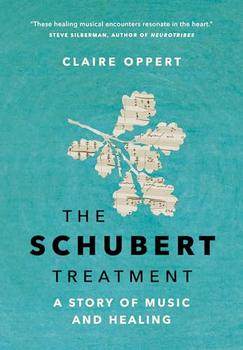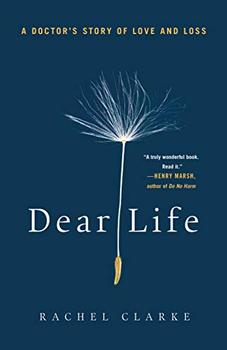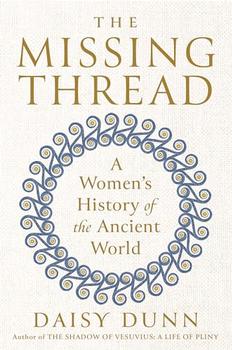Summary | Excerpt | Reviews | Beyond the book | Read-Alikes | Genres & Themes | Author Bio

A Story of Music and Healing
by Claire OppertA celebrated art therapist plays the cello for her patients—and offers a moving reflection on the extraordinary power of music to enrich our lives, all the way to the very end.
When Claire Oppert plays the cello, miracles happen. Children with profound autism, patients in extreme pain and distress, even people on the threshold of death smile, cry, laugh, sing and dance. "When you play, I'm not sick anymore," one man tells her. "I feel happy, I feel alive."
In The Schubert Treatment, Oppert recounts her remarkable story of healing suffering through music, alongside portraits of the many people she has helped. Born into a family of doctors and artists, Oppert trained as a classical cellist and began playing at a center for autistic youth, where she witnessed how music could connect with even the most difficult-to-reach patients. Later, she began working as an art therapist with people with neurodegenerative diseases and palliative care patients, eventually conducting clinical trials that proved the effect of her "Schubert treatment": using music as a counter-stimulation to reduce pain and anxiety during stressful procedures.
Oppert's crystalline, lyrical vignettes of the patients whose lives she has touched are punctuated with anecdotes from her own life as a musician, as well as reflections on the meaning of art and the human need for connection and creativity. Compassionate, uplifting, and deeply humane, The Schubert Treatment is a testament to the incredible power of music to heal our bodies, minds, and souls.
Prologue
Schubert, Piano Trio no. 2 in E-flat Major, op. 100
Andante con moto
Exposition
april 2012. paris, korian jardins d'alésia.
The leaves of the tall oak quiver in spring's new light in front of the windows of the EHPAD, the établissement d'hébergement pour personnes âgées indépendantes, an assisted-living retirement facility.
On the floor for the residents with dementia, the door to the common room we call l'Espace is wide open.
Espace—space—is a funny word. The dictionary defines it as the span of the physical universe, the vacuum between the planets, the stars, and the galaxies.
I walk into the common room and turn off the television, just as I do every Monday, a ritual.
The television stays on all day long even though no one is watching. When I click it off, the set makes a peculiar noise, like a machine being swallowed, and leaves a flicker of grey in the silence.
The floor for the twenty-one patients with dementia is a closed, protected ...
The interspersed backstory provides depth and captures Oppert's motivation, and as she begins to work in a more clinical setting, these sections explain the development and testing of the Schubert Treatment—the calming effect of music that reduced pain and anxiety, named after the famous Austrian composer, Franz Schubert. Oppert's writing is emotional and detailed, bringing individuals to life in only a few pages, and the inclusion of specific pieces of music at the beginning of each vignette provides a soundtrack to further connect with her work. This memoir is a heartwarming show of the unique power of music to connect and heal people at all levels of health...continued
Full Review
 (556 words)
(556 words)
(Reviewed by Jordan Lynch).
 Adriana Barton, author of Wired for Music
In astonishing encounters with Oppert's cello, music becomes a lifeline for those who lack memory, language, hope, or trust. Raw and lyrical, The Schubert Treatment sparkles with insight and faith in the human spirit.
Adriana Barton, author of Wired for Music
In astonishing encounters with Oppert's cello, music becomes a lifeline for those who lack memory, language, hope, or trust. Raw and lyrical, The Schubert Treatment sparkles with insight and faith in the human spirit. Andrew Schulman, author of Waking the Spirit: A Musician's Journey Healing Body, Mind, and Soul
A cello is a musical instrument, but in the right hands it can also be an invaluable medical instrument. Claire Oppert shows on every page of The Schubert Treatment just how indispensable the music she makes is for her patients. Her passion for music and healing shines through, bringing the reader into each room and bedside. This is an important book, helping to bring music back to its ancient role as an integral part of medicine.
Andrew Schulman, author of Waking the Spirit: A Musician's Journey Healing Body, Mind, and Soul
A cello is a musical instrument, but in the right hands it can also be an invaluable medical instrument. Claire Oppert shows on every page of The Schubert Treatment just how indispensable the music she makes is for her patients. Her passion for music and healing shines through, bringing the reader into each room and bedside. This is an important book, helping to bring music back to its ancient role as an integral part of medicine. Steve Silberman, author of Neurotribes
These healing musical encounters at the frontiers of 'unimaginable lands'—the lands of profound dementia and non-speaking autism— resonate in the heart like chords on Claire Oppert's cello.
Steve Silberman, author of Neurotribes
These healing musical encounters at the frontiers of 'unimaginable lands'—the lands of profound dementia and non-speaking autism— resonate in the heart like chords on Claire Oppert's cello.In The Schubert Treatment, musician Claire Oppert shares her experiences with the healing power of music. A classically trained cellist, Oppert was inspired by the work of her physician family members to begin playing music in nursing homes and medical facilities. One of these facilities was the Adam Shelton Center in Saint-Denis, France, which is a medical and educational institute for young people with autism spectrum disorder (ASD). Oppert's experiences there show the significant impact of music therapy for individuals with ASD, and this is supported by scientific research.
Music therapy is the use of music as an intervention to help accomplish specific, individualized goals. This form of therapy is clinical and evidence-based and is ...

If you liked The Schubert Treatment, try these:

by Andrew Leland
Published 2024
A witty, winning, and revelatory personal narrative of the author's transition from sightedness to blindness and his quest to learn about blindness as a rich culture all its own

by Rachel Clarke
Published 2020
In Dear Life, palliative care specialist Dr. Rachel Clarke recounts her professional and personal journey to understand not the end of life, but life at its end.



